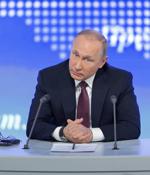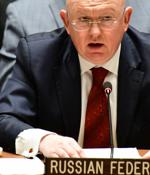Security News

A controversial United Nations proposal has a new foe, Microsoft, which has joined the growing number of organizations warning delegates that the draft version of the UN cybercrime treaty only succeeds in justifying state surveillance - not stopping criminals, as originally intended. "The risk is that the treaty will not be a tool for prosecuting criminals but rather a weapon that allows for intrusive data access and surveillance instruments," she wrote in a LinkedIn post.

The Washington Post is reporting that the US is spying on the UN Secretary General. The reports on Guterres appear to contain the secretary general's personal conversations with aides regarding diplomatic encounters.

EFF has a good explainer on the problems with the new UN Cybercrime Treaty, currently being negotiated in Vienna. The draft treaty has the potential to rewrite criminal laws around the world, possibly adding over 30 criminal offenses and new expansive police powers for both domestic and international criminal investigations.

The UN Cybercrime Treaty, to the extent it gets adopted, is expected to define global norms for lawful surveillance and legal processes available to investigate and prosecute cybercriminals. What concerns Rodriguez and other representatives of advocacy groups at the briefing is that the treaty negotiators will compromise on surveillance, privacy, and human rights.

Grâce ses technologies basées sur le cloud, Cisco Meraki vous apporte de la simplicité. Nous réunissons IT, IoT et environnements physiques pour permettre aux équipes informatiques de déployer des espaces intelligents automatisés.

As Russia's invasion of Ukraine rolls through its second week, a United Nations committee has begun hearings on a proposed new cybercrime treaty Russia has been pushing. "Russia has long turned not only a blind eye to cyber criminals operating in its borders, but has openly and actively support it. It's hard to see how Russia could engage in negotiations for a legally-binding cybercrime treaty in good faith. It's harder still to see how it can negotiate at the United Nations for a treaty based on upholding state sovereignty while simultaneously invading a sovereign nation state."

For the past couple of years, Apple has made plenty of claims that its browser is all about security. The problem is, like with so much of what they do, Apple forces the users into working with their apps the way they believe is best.

T-Mobile US has begun admitting to the theft of 100 million user accounts in stages, confessing overnight that 8 million people's personal details had been stolen from its servers. In a statement the American mobile operator said: "Yesterday, we were able to verify that a subset of T-Mobile data had been accessed by unauthorized individuals. We also began coordination with law enforcement as our forensic investigation continued."

Human rights experts working with the United Nations on Thursday called on countries to pause the sale and transfer of spyware and other surveillance technology until they set rules governing its use, to ensure it won't impinge upon human rights. The experts, speaking out in the wake of new Pegasus spyware revelations, expressed concern that "Highly sophisticated intrusive tools are being used to monitor, intimidate and silence human rights defenders, journalists and political opponents" in some places, the U.N. human rights office said.

Russia has put forward a draft convention to the United Nations ostensibly to fight cyber-crime. The proposal, titled "United Nations Convention on Countering the Use of Information and Communications Technologies for Criminal Purposes," [PDF] calls for member states to develop domestic laws to punish a far broader set of offenses than current international rules recognize.